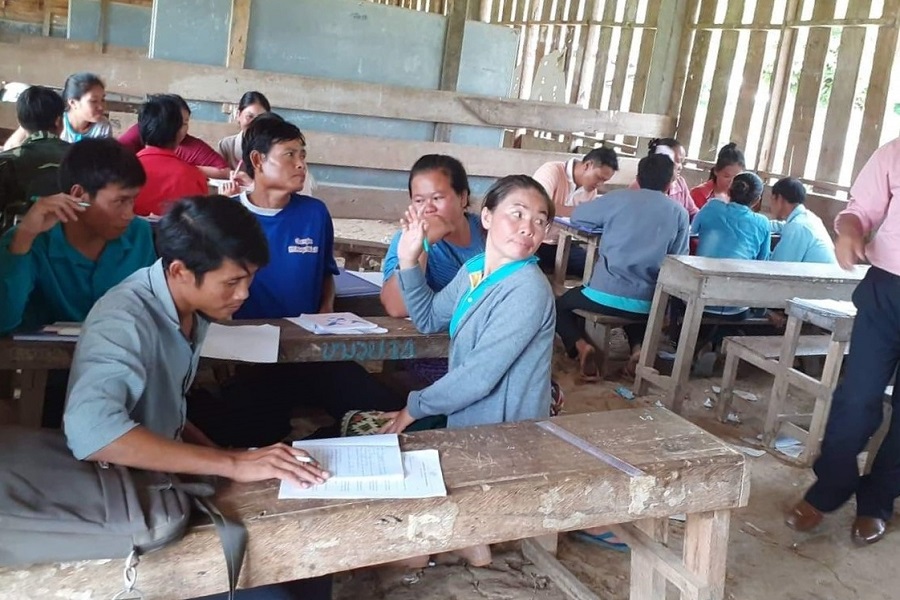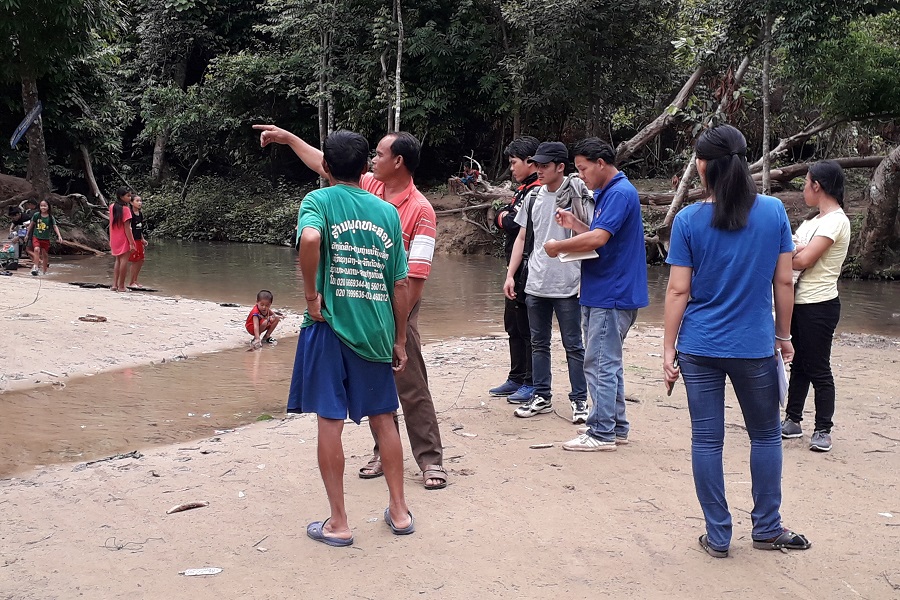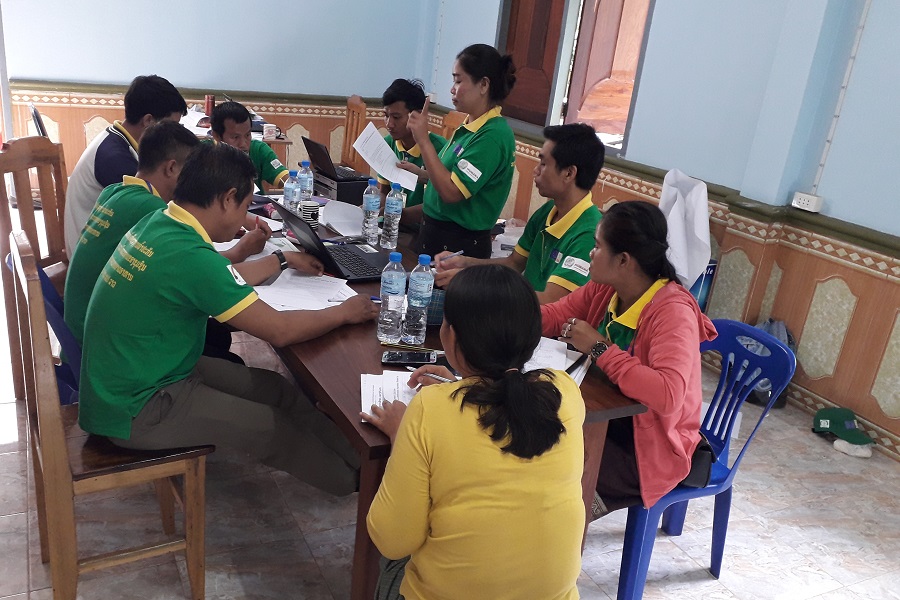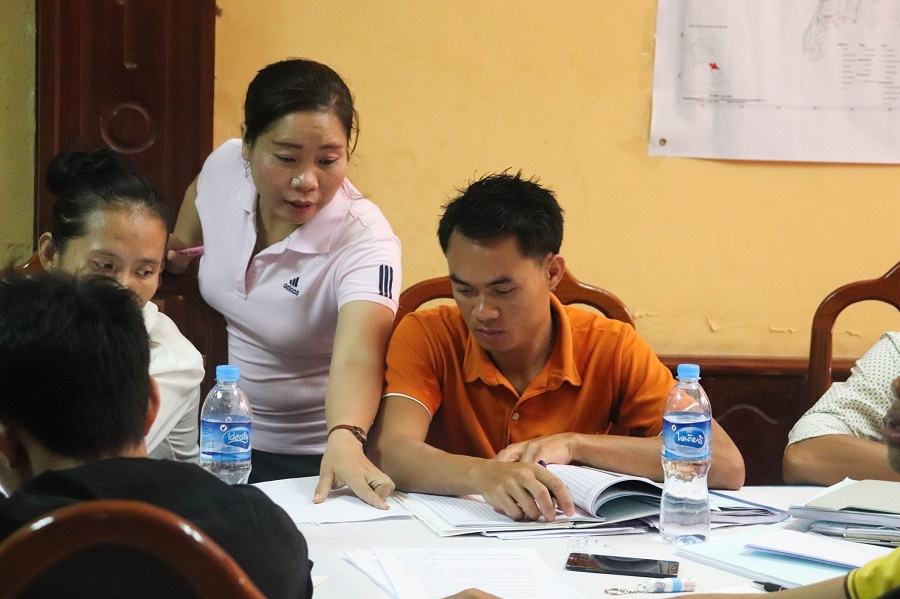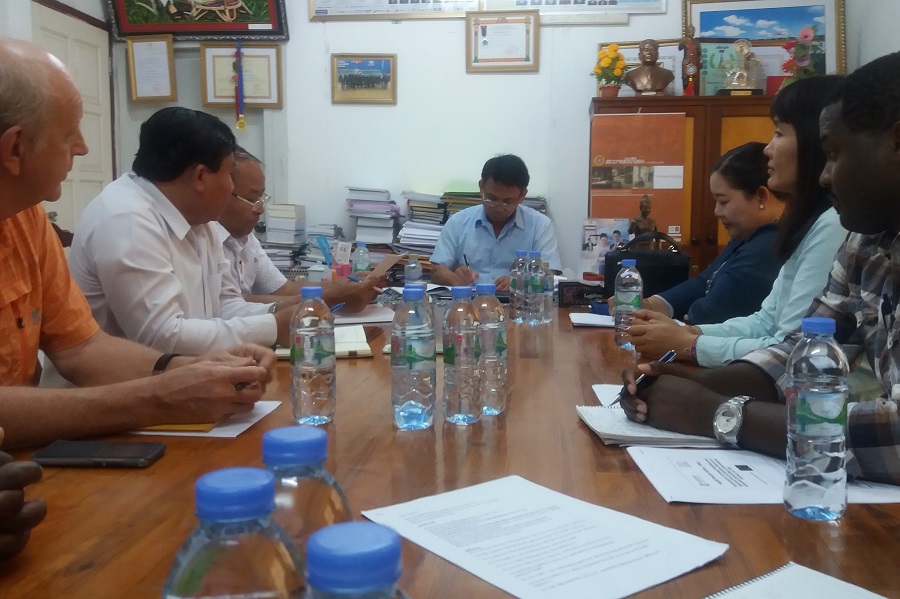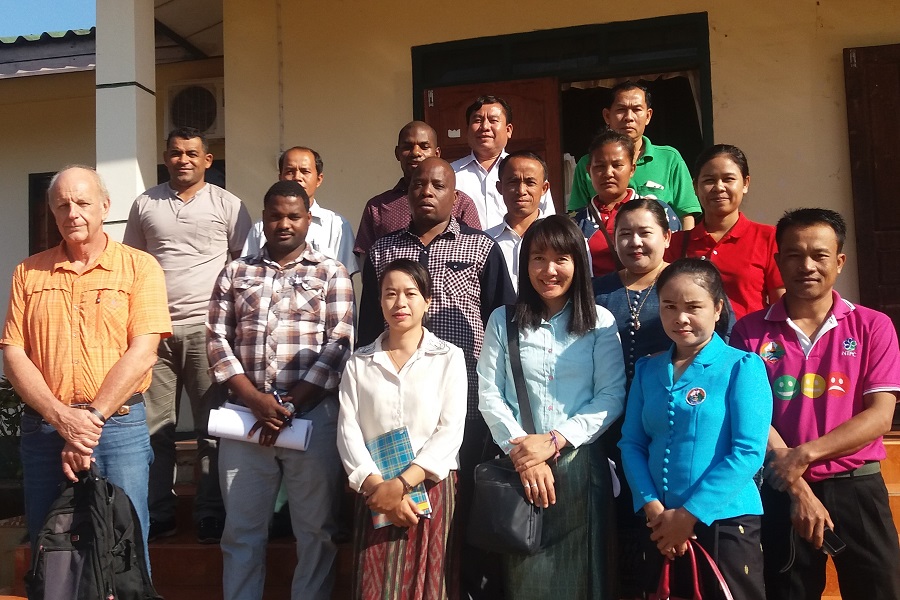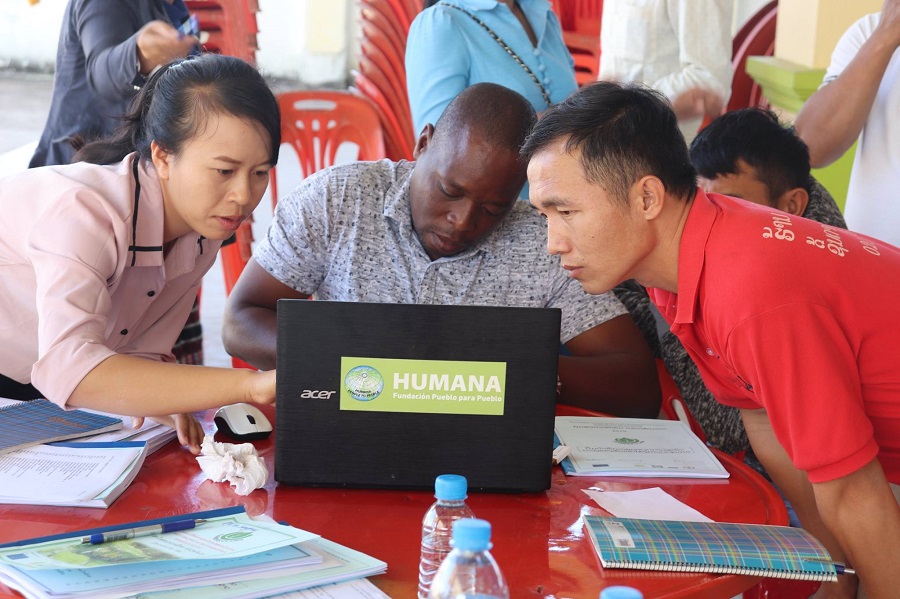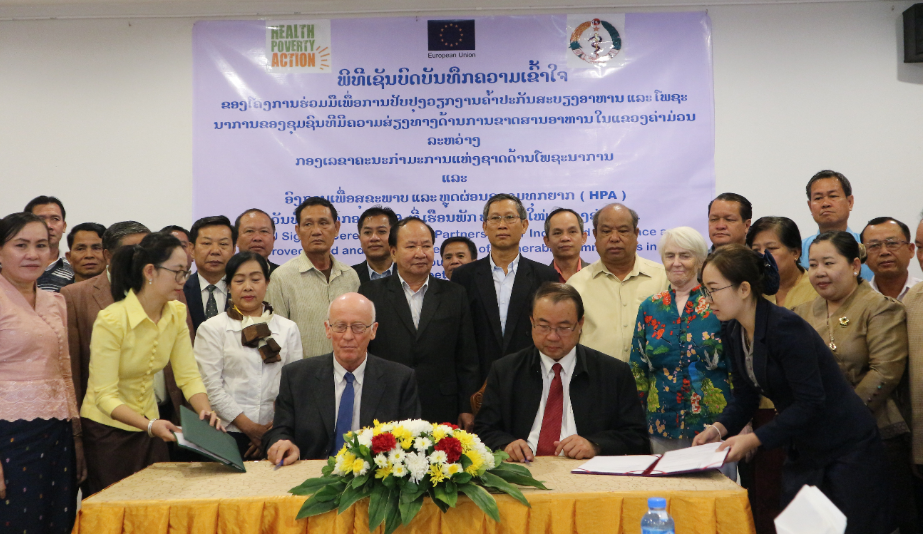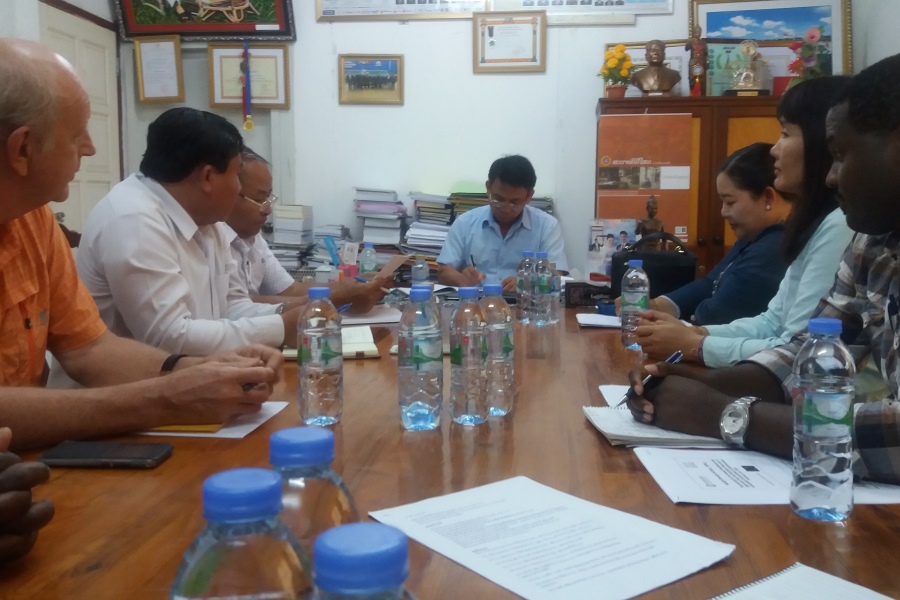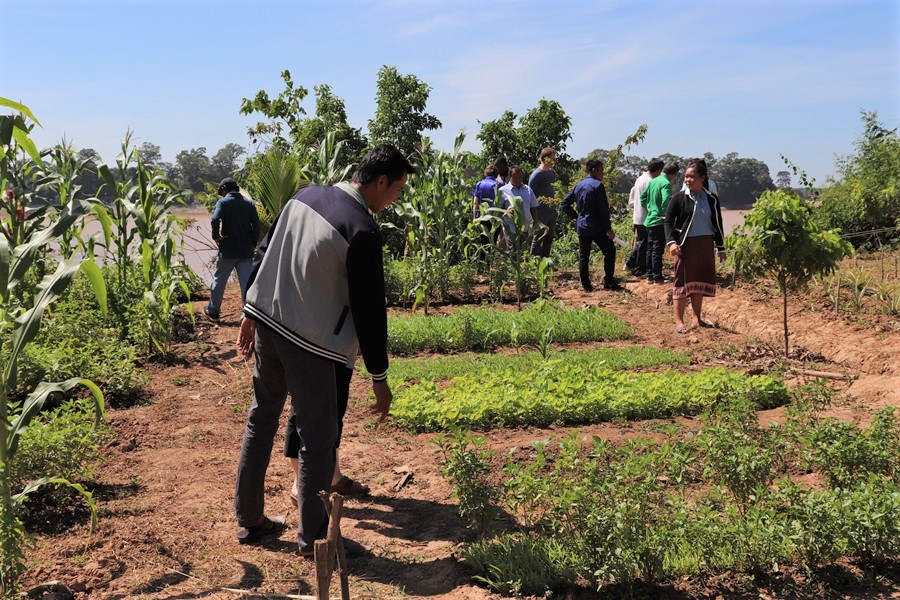Towards improved nutrition with good organisation
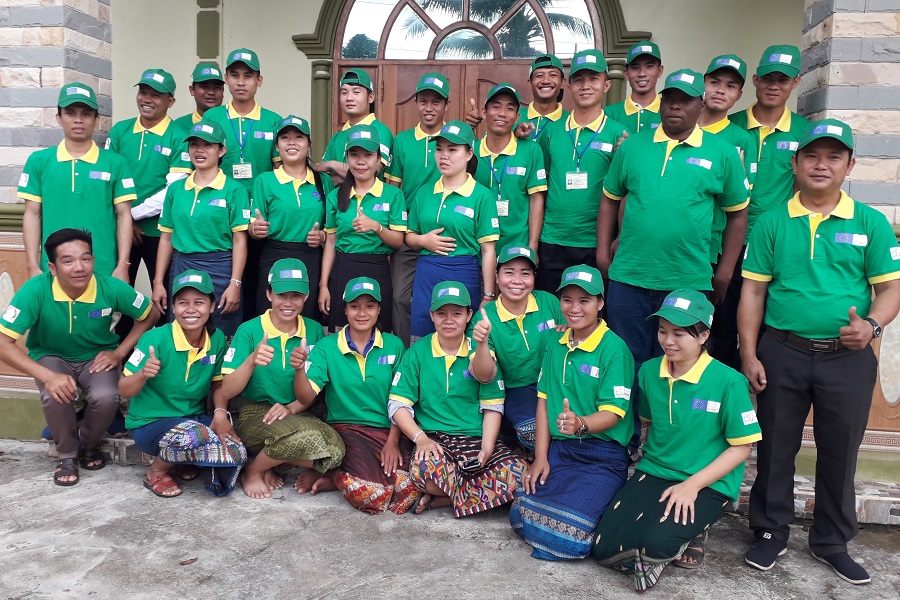
Our Agriculture and Nutrition team has been active all over Khammouane Province in our 6 target districts, developing work and production plans and other monitoring systems in conjunction with beneficiaries and local authorities.
Before the start of the rainy season in June, activities such as surveying water and irrigation systems in all districts and training Farmers’ Clubs’ leaders and village authorities in sustainable agriculture techniques were completed. Project progress in all districts was then discussed at the quarterly team meeting in Thakek where all project staff come together to debrief, solve challenges together, and plan for upcoming activities. Organisation is key to success, and as one team member put it during a discussion – “when farmers are well-organised and mobilised they are able to fight the challenges they face for a better life”.
During a workshop with staff from all districts, field team leaders sat down with field officers to develop the latter’s responsibilities and work plans, and to discuss the text message monitoring system for Farmers’ Clubs as well as the logbook system. With these tools, field staff can track project progress and communicate it to the farmers to support ownership of project monitoring. Recording and evaluating gains in production simultaneously strengthens the farmers' self-confidence as they clearly see changes in yield and income.
A main component of these sessions was to share experiences and progress from the different project sites. For instance, organising field staff who are responsible for five Farmers’ Clubs each, in groups of three or two people has proven very successful. These Trios and Duos support each other and solve problems together. At the same time, this structure makes it easier for the project’s three field team leaders to support their colleagues as each leader is responsible for six to eight field staff.

